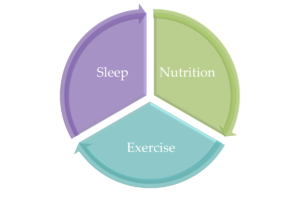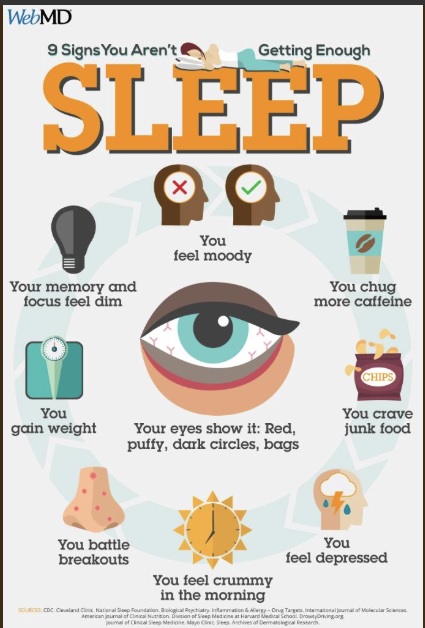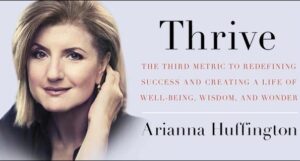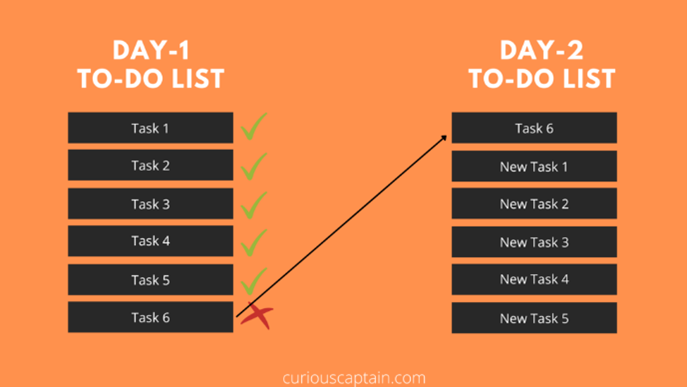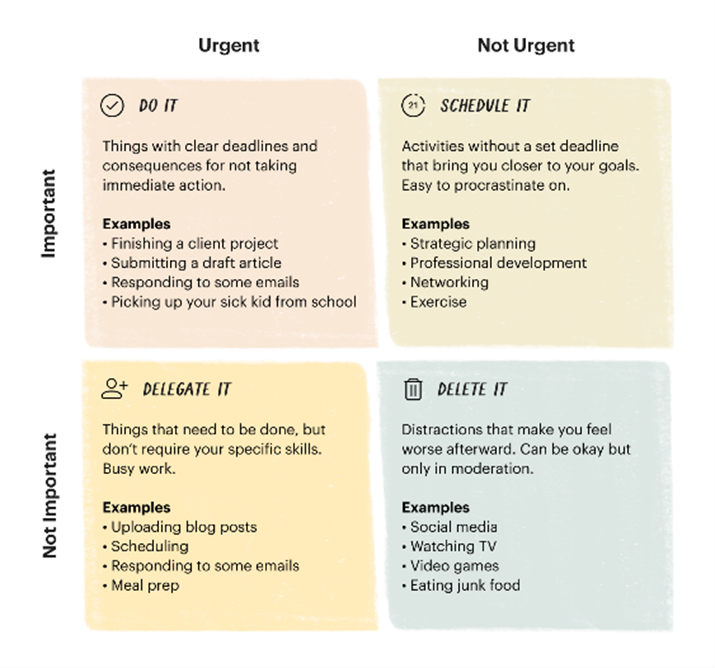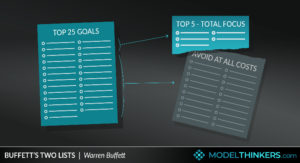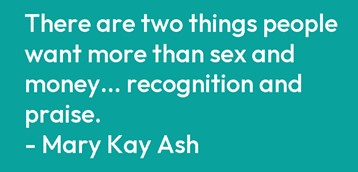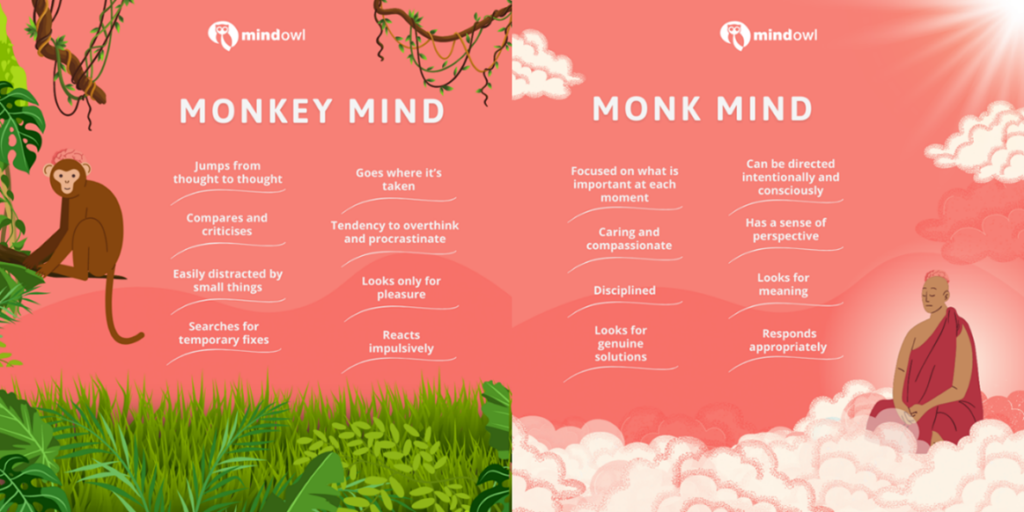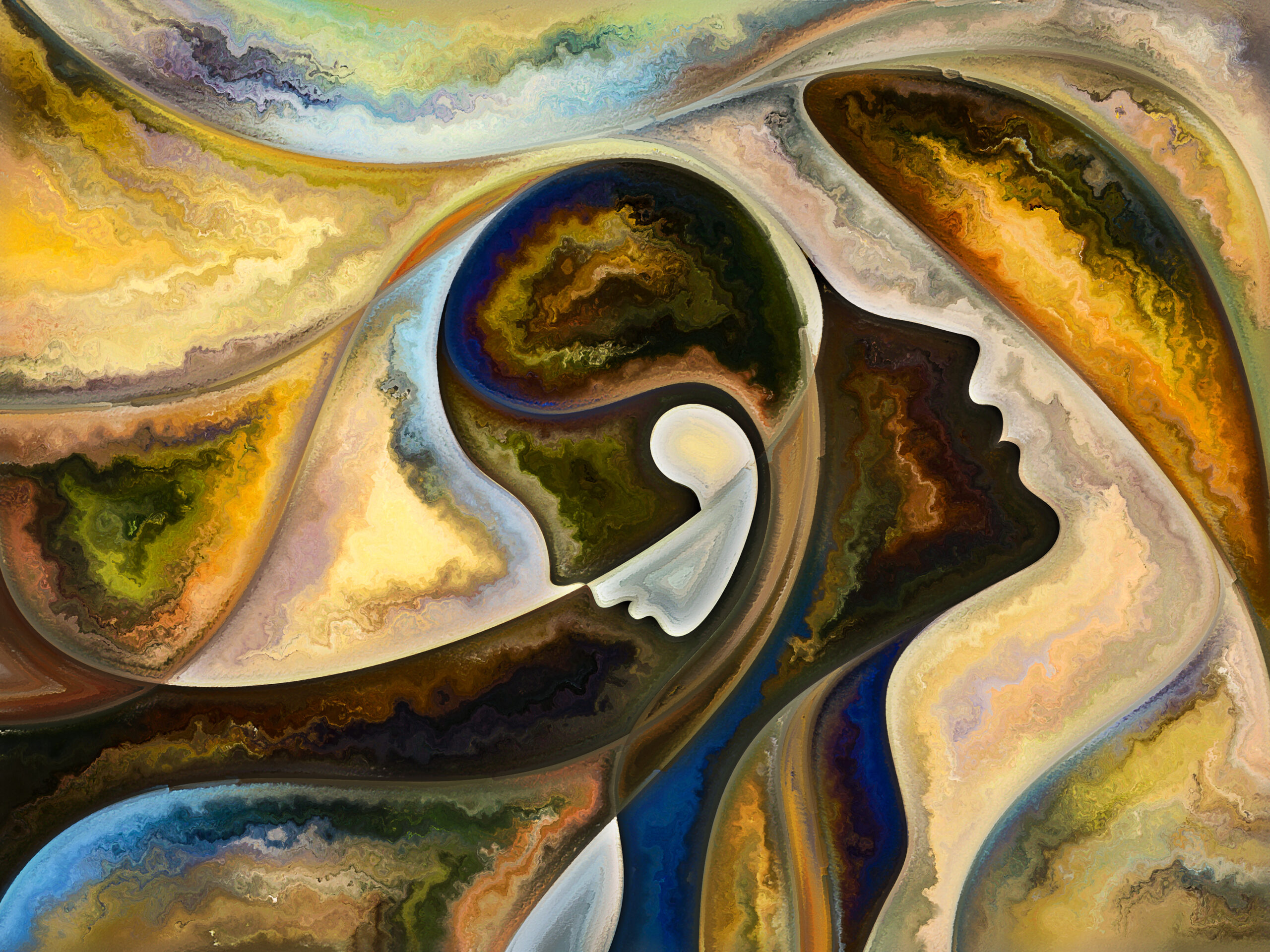How much time do you spend inside? How about staring at a screen? These days, we’re spending more and more of our time indoors and online. Many people don’t get outside enough.
Too many of us are nature-deprived. It’s part of a larger historical trend from the Industrial Revolution. With bigger cities and factories and more office work and indoor living, more and more of us have started feeling separate from nature—or even alienated from it. This has real implications. Richard Louv, an author and co-founder of the Child & Nature Network who coined the term “nature deficit disorder,” noted:
“Nature is not only nice to have, but it’s a have-to-have for physical health and cognitive functioning.” (1)
The Benefits of Getting Outside and Being in Nature
Being in nature has all sorts of benefits. According to the research, being in nature can lead to a reduction of anxiety, blood pressure, heart rate, stress hormones, anger, attention fatigue, muscle tension, the effects of Seasonal Affective Disorder (a mood disorder in climates where there’s less sunlight during parts of the year), and more.
Furthermore, spending time in nature can help promote the following:
- greater attentional capacity, including focus and concentration
- our ability to connect with others (a key contributor to our happiness)
- creativity and creative problem-solving abilities
- empathy and love (2)
- more exercise
- immune function
- a sense of meaningfulness
- physical wellbeing
- positive mood
- sleep quality
- vitality
- healthy management of body weight
“I felt my lungs inflate with the onrush of scenery—air, mountains, trees, people.
I thought, ‘This is what it is to be happy.’” -Sylvia Plath, The Bell Jar
To be clear, being in nature doesn’t have to mean deep wilderness expeditions. Many people these days live in cities or suburbs, and they’re wise to take advantage of what Linda Åkeson McGurk, author of The Open-Air Life, calls “nearby nature.” That means just getting outside in our local neighborhoods and finding whatever green or blue (water) spaces we can.

Sunlight plays an important role here. Direct sunlight has about 200 times the intensity of office lights. Our body’s internal clock depends on the daily cycle of sunlight and darkness. Getting exposure to sunlight helps us feel more tired at night and shorten the time to fall asleep. Sunlight exposure can help with fatigue and low mood. It also helps us get Vitamin D, which is important for our bones, blood cells, and immune system, as well as absorption of certain minerals (e.g., calcium and phosphorus). Also, it helps keep our serotonin levels up, which keeps our mood calm, positive, and focused.
Getting outside can also help us be more social. When we go outside, we get more chances to see and connect with people, which is essential for our health and happiness. (See my article, “The Most Important Contributor to Happiness.”)
There are different theories as to why being in nature is so beneficial. One is “biophilia theory”: since we evolved in wild, natural settings and relied on the environment for survival, we have an innate drive and need to be in nature. Another is “attention restoration theory”: being in nature replenishes our cognitive resources, like our ability to pay attention and concentrate, when they get depleted.
“If you’ve been using your brain to multitask—as most of us do most of the day—and then you set that aside and go on a walk, without all of the gadgets, you’ve let the prefrontal cortex recover. And that’s when we see these bursts in creativity, problem-solving, and feelings of well-being.”
-David Strayer, professor of cognition and neural science, University of Utah
Most likely, it’s a combination of these and other factors.
10 Tips for Getting Outside
When we learn about all the benefits of getting outside, it can motivate us to do so. Still, we have work obligations, time pressures, and all sorts of online distractions and temptations. It’s a challenge for many of us. So, here are ten tips for getting outside more:
1. Keep it simple. It doesn’t have to be trekking into the deep wilderness. Take advantage of your nearby nature and do simple activities like walking.
2. Make it a habit and create outdoor rituals, like morning coffee on the deck, mid-day walks, or evening chats on the patio.
3. Exercise outside sometimes, including walks, hikes, runs, bike rides, or other outdoor activities or sports. (See my article, “Exercise and Movement for Health, Wellbeing, and Great Work.”)
4. Limit screen time, since it keeps us from enjoying the great outdoors. Don’t check your phone first thing in the morning. Check those daily screen time stats regularly. And be sure to unplug sometimes when out there walking or running so you can listen to the birdsong and be present where you are.
5. Experience nature with a friend. This comes with several benefits: deepening our social relationships (a primary contributor to our happiness), exercise, and all the advantages of nature.
6. Try gardening. It has many positive health benefits, according to a large body of research. Gardening, with its digging, planting, raking, carrying, squatting, kneeling, and more, entails functional movement that incorporates whole-body exercise, including movements similar to squats and lunges. According to the research, gardening can:
- lower levels of stress and anxiety
- improve our cognitive function and mood
- reduce our body mass index
- provide helpful structure to our days or weekends
- increase our psychological wellbeing, quality of life, and sense of life satisfaction
- enhance self-esteem and creativity
- reduce the effects of dementia
What’s more, it’s gratifying to plant, tend, harvest, eat, and share home-grown food. It’s healthy and good for the environment as well. Gardening is also a great activity for practicing mindfulness.
7. Visit city parks, nature reserves, and national parks. They’re there for a reason. They can help bring calm, gratitude, or awe back into our lives.
8. Go camping, boating, climbing, or trekking. These are great ways to bring fun and adventure back into our lives.
9. Try forest bathing (spending time in a forest environment). The Japanese call it Shinrin-yoku. Studies show that it can help boost our energy and immune system as well as help us sleep better and recover more quickly when we get sick.
10. Go wild sometimes, i.e., do go to the forests, jungles, prairies, mountains, lakes, seas, or oceans sometimes. As writer Linda Åkeson McGurk points out, the wilder it is, the more restorative it’s likely to be.
What about Office Workers?
Thankfully, office workers aren’t doomed to nature deprivation. They’re wise to take breaks (including lunch) outdoors and have walking meetings whenever possible. It helps to have a supportive workplace. (3) For example, managers wanting to support the health, wellbeing, and productivity of their team can:
- provide a space for employees to relax and get away from the office (e.g., an outdoor area with comfortable seating)
- give workers flexible hours
- offer wellness programs
- have bicycles on the workplace grounds, if applicable, and/or provide incentives for commuting by bicycle
- employ outdoor team-building activities
- incorporate nature in company meetings and retreats
What the Nordic Countries Taught Me About This
When I moved to Sweden many years ago, the temperature dropped to minus 22 degrees Fahrenheit (minus 30 degrees Celsius) that first winter. A bit colder, and we could have reached the place where Fahrenheit and Celsius converge (minus 40 Fahrenheit equals minus 40 Celsius). For this man who grew up in southern California, it was a shock. But not as big of a shock as seeing all the Swedes get out into that bone-chilling cold. There’s a famous saying in Swedish:
Det finns inget dåligt väder, bara dåliga kläder.
“There’s no such thing as bad weather, only bad clothes.”
Enter what the Swedes and Norwegians call friluftsliv (which we can translate as “free-air life,” “fresh-air life,” or “open-air life”). Linda Åkeson McGurk wrote a book about it: The Open-Air Life: Discover the Nordic Art of Friluftsliv and Embrace Nature Every Day.

Friluftsliv is about connecting with nature in simple ways. It’s a lifestyle in the Nordic countries that’s been passed down across generations, that’s taught in schools, and that’s used as preventive care for mental health (nature therapy), often for people with burnout.
When in the Nordics, you can see it all around you, from people enjoying time in their summer cottages for weeks at a time, to grilling hot dogs outside in the middle of winter (grillkorv), to baby strollers placed outside on the porch of daycare centers and preschools in the middle of winter, with the children swaddled in cozy blankets and breathing fresh air. It’s also a part of the work culture, with gå och prata möten (“walk and talk meetings”). There’s also a conservation aspect: the more connected we are to nature, the more likely we’ll be good stewards of natural places and resources.
During that first winter in Sweden, my inclination was to hunker down by the fireplace. Eventually, I learned a better approach. In Sweden, you just pile on with about seven layers of clothing, including snow pants and great winter gloves, boots, and hats, and you get out there in that magical winter. And in the dark rains of November. Rain or snow, you just get out. It makes a big difference. Friluftsliv.
What are your favorite ways to get outdoors?
How can you build more of them into your routines?
Tools for You
- Traps Test (Common Traps of Living) to help you identify what’s getting in the way of your happiness and quality of life
- Quality of Life Assessment to help you discover your strongest areas and the areas that need work and then act accordingly
- Crafting Your Life & Work online course to help you design your next chapter and create a life you love.
Related Articles
- “Health and Vitality: Keys to Your Quality of Life”
- “Exercise and Movement for Health, Wellness, and Great Work”
- “Renewing Yourself Amidst the Chaos”
- “Do You Have Margin in Your Life?”
- “The Trap of Workaholism—And What to Do About It”
- “Good Nutrition for Health and Wellness”
- “Great Sleep for Health, Wellness, and Great Work”
- “The Problem with Tired Leaders”
- “The Trap of Bad Habits—And How to Break Them”
- “Burnout and the Great Resignation”
- “The Power of Awe in Our Lives”
- “Why We Want Adventure in Our Lives—And How to Get It”
- “Ten Keys to Self-Leadership”
- “A Guide to Life-Boosting Activities”
Related Books and Podcasts
- Book: Linda Åkeson McGurk, The Open-Air Life: Discover the Nordic Art of Friluftsliv and Embrace Nature Every Day (TarcherPerigee, 2022)
- Book: Linda Åkeson McGurk, There’s No Such Thing as Bad Weather: A Scandinavian Mom’s Secrets for Raising Healthy, Resilient, and Confident Kids (Touchstone, 2018)
- Richard Louv, Vitamin N: The Essential Guide to a Nature-Rich Life (Algonquin Books, 2016)
- Richard Louv, Last Child in the Woods: Saving Our Children from Nature-Deficit Disorder (Algonquin Books, 2008)
- Podcast: “We Know Nature Is Good for Us. Here’s How to Make Time for It, Scandinavian Style,” Ten Percent Happier with Dan Harris podcast interview with Linda Åkeson McGurk, August 28, 2023.
Postscript: Inspirations on Nature
- “In all things of nature there is something of the marvelous.” -Aristotle, ancient Greek philosopher
- “They will forget the rush and strain of all the other weeks of the year, and for a short time at least, the days will be good for their bodies and good for their souls. Once more they will lay hold of the perspective that comes to those who every morning and every night can lift their eyes up to Mother Nature.” -Theodore Roosevelt, former U.S. president, naturalist, and conservationist
- “I went to the woods because I wished to live deliberately, to front only the essential facts of life, and see if I could not learn what it had to teach, and not, when I came to die, discover that I had not lived.” -Henry David Thoreau, American naturalist, essayist, poet, and philosopher
- “Nature itself is the best physician.” -Hippocrates
- “If you wish to know the divine, feel the wind on your face and the warm sun on your hand.” -Buddha
- “It is enough for me to contemplate the mystery of conscious life perpetuating itself through all eternity, to reflect upon the marvelous structure of the universe which we can dimly perceive, and to try humbly to comprehend even an infinitesimal part of the intelligence manifested in nature.” -Albert Einstein, theoretical physicist
- “The earth has music for those who listen.” -William Shakespeare, English poet, playwright, and actor
- “We can never have enough of nature. We must be refreshed by the sight of inexhaustible vigor, vast and Titanic features, the sea-coast with its wrecks, the wilderness with its living and its decaying trees, the thunder cloud, and the rain which lasts three weeks and produces freshets. We need to witness our own limits transgressed, and some life pasturing freely where we never wander.” -Henry David Thoreau, Walden
- “I have just come from four days rest in Yosemite… Lying out at night under those giant sequoias was lying in a temple built by no hand of man, a temple grander than any human architect could by any possibility build….” -Theodore Roosevelt, former U.S. president, naturalist, and conservationist
Appendix: Research on the Benefits of Nature
A study of 19,806 people by University of Exeter environmental psychologist Mathew White and his colleagues found that people who spent two hours a week in green spaces (e.g., local parks or other natural environments) were substantially more likely to report good health and psychological wellbeing than those who don’t. This finding held true whether the visits to green spaces were all at once or spread out over multiple visits. Source: White, M.P., Alcock, I., Grellier, J. et al. Spending at least 120 minutes a week in nature is associated with good health and wellbeing. Sci Rep 9, 7730 (2019).
“Walk in nature and feel the healing power of the trees.”
-Anthony William
In a Japanese experiment, researchers measured the heart rate and blood pressure of people who were assigned to either walk in a forest or an urban center. The walks were of equal length and difficulty. Those who walked in forests had significantly lower heart rates and reported better moods and less anxiety than the others. Finnish researchers found that city dwellers who walked for as little as 20 minutes through a city park or woodland reported significantly more stress relief than people who walked in a city center.
Dr. Gregory Bratman and his Stanford University colleagues conducted a 2015 study in which 60 participants were randomly assigned to walk for 50 minutes in either a natural setting of oak woodlands or in an urban setting along a four-lane road. The people who walked in nature experienced less anxiety, rumination, and negative affect (likelihood of experiencing negative emotions), plus more positive emotions and better performance on memory tasks. Dr. Bratman and his colleagues noted evidence from a review of the research that contact with nature is associated with increases in happiness, subjective wellbeing, positive social interactions, and a sense of meaning and purpose in life—as well as decreases in mental distress. Source: Gregory N. Bratman et al., Nature and mental health: An ecosystem service perspective. Sci. Adv. 5, (2019).
According to a meta-analysis from Dr. Alison Pritchard at the University of Derby in England and her colleagues, people who feel more connected to nature have greater “eudaimonic wellbeing” (experiences associated with living a life of full flourishing, growth, authenticity, meaning, and excellence). Source: Pritchard, A., Richardson, M., Sheffield, D. et al. The Relationship Between Nature Connectedness and Eudaimonic Well-Being: A Meta-analysis. J Happiness Stud 21, (2020).
Peter Aspinall and his colleagues at Heriot-Watt University in Edinburgh, Scotland studied participants while they walked through an urban green space. Mobile electroencephalogram (EEG) monitors showed lowered engagement, arousal, and frustration while in the green space and higher engagement levels when departing from the green space.
Roger Ulrich and his Texas A&M University colleagues conducted an experiment in which participants viewed a stressful movie and then either videos of natural scenes or videos of urban settings. The people who viewed natural scenes demonstrated a much quicker and more complete recovery from their stress. In a study of gallbladder surgery patients, with half of the patients given a view of trees and half given a view of a wall, the patients with the view of the trees tolerated pain better and spent less time in the hospital. Nurses also reported that they had fewer negative effects from the surgery.
Juyoung Lee, Dacher Keltner, and other University of California, Berkeley researchers showed participants nature scenes, independently rated for their levels of beauty, and then observed their behavior in two games, one measuring generosity and another measuring trust. Those who viewed the more beautiful nature scenes experienced greater positive emotions and acted with greater generosity and trust in the games than the others.
Penn State University sound researcher Joshua Smyth has found that when people hear songbirds, the tension in their nervous system falls. The opposite occurs when they hear cars and airplanes. Another study compared participants who listened to nature sounds (e.g., waves crashing and crickets chirping) to those who listened to urban sounds (e.g., traffic and the noises of a busy café). Those who listened to nature sounds performed better on demanding cognitive tests. Source: Van Hedger, S.C., Nusbaum, H.C., Clohisy, L. et al. Of cricket chirps and car horns: The effect of nature sounds on cognitive performance. Psychon Bull Rev 26, (2019).
According to a 2015 study of 2,000 people in the United Kingdom, more exposure to nature was associated with more community cohesion and substantially lower crime rates. Source: Netta Weinstein et al., Seeing Community for the Trees: The Links among Contact with Natural Environments, Community Cohesion, and Crime, BioScience, Volume 65, Issue 12, 01 December 2015.
“One touch of nature makes the whole world kin.”
-William Shakespeare, English poet, playwright, and actor
The benefits of nature aren’t limited to green spaces. They also come from blue spaces, including marine and freshwater environments.
(1) According to researchers, concentrations of air pollutants are much higher indoors than outdoors, and there’s a risk of respiratory problems because of that. Being outside can also help reduce the chances of contracting airborne viruses like the flu and covid-19.
(2) When study participants viewed nature scenes, it activated the parts of the brain associated with empathy and love, according to fMRI scans.
(3) More and more organizations are paying attention to and investing in this. We’ve even seen an increase in “forest schools” in many countries. Forest schools are found in Denmark, Sweden, Germany, the United States, the United Kingdom, Australia, New Zealand, Canada, China, and Japan, among other countries.
++++++++++++++++++++++++++++++
Gregg Vanourek is a writer, teacher, TEDx speaker, and coach on personal development and leadership. He is co-author of three books, including LIFE Entrepreneurs: Ordinary People Creating Extraordinary Lives (a manifesto for living with purpose and passion) and Triple Crown Leadership: Building Excellent, Ethical, and Enduring Organizations (a winner of the International Book Awards). Check out his Crafting Your Life & Work online course or get his monthly newsletter. If you found value in this article, please forward it to a friend. Every little bit helps!







